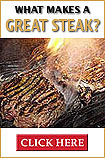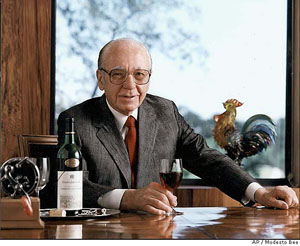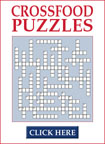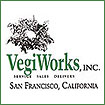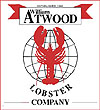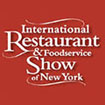|
Ernest
Gallo: 1909 - 2007
(Modesto Bee via AP) |
Ernest
Gallo: 1909 - 2007
With brother, he created World's Largest
Winery
By W. Blake Gray, Steve Rubenstein, Chronicle
Staff Writers
Winemaker
Ernest Gallo, who learned his craft in
the basement of the Modesto public library
and went on to develop with his brother
Julio one of the largest wine empires
in the world, has died. Gallo, 97, died
unexpectedly Tuesday in his Modesto home.
An
aggressive businessman who worked long
hours and then went home and worked some
more, Gallo insisted on always having
his home number listed in the Modesto
phone book so the world would know where
to find him. His collection of wineries
and labels, all privately owned, employs
4,600 workers and sells wine in 90 countries.
For
decades, the name Gallo was synonymous
with inexpensive California wine. Gallo
battled that image with advertising, with
humor, with lawsuits and, to a large extent,
by buying up wineries with more exclusive
labels than his own.
"Ernest
was a visionary,'' said his friend and
fellow winemaker, Robert Mondavi of Napa
Valley. "He was committed to making
America a wine-drinking country.''
Gallo
lived and breathed wine. He aired wine
commercials on TV, he sat on wine promotion
boards, he chaired the Wine Institute,
he mentored generations of winemakers,
he erected wine billboards, he traveled
the country checking on wine displays
in supermarkets, and he enjoyed drinking
his own stuff, particularly a product
that morphed over the years from "red
table wine" to "Cabernet Sauvignon.''
When
he was a boy, his Aunt Tillie in San Francisco
read his fortune in tarot cards and told
him he would become successful in business,
according to "Ernest & Julio:
Our Story," his joint autobiography
with his brother. His future profession
was not clear to Tillie, but she foresaw
that it would involve a fluid -- either
oil or wine.
Ernest
and Julio founded E. & J. Gallo Winery
in 1933 using a $5,000 loan from Ernest's
mother-in-law and Julio's entire savings
of $900.23.
The
brothers learned about winemaking by reading
old, pre-Prohibition pamphlets found in
the basement of the Modesto Public Library.
With
Ernest running the business side and Julio
overseeing production, the company eventually
dominated the U.S. wine industry. Until
2003, when Constellation Brands expanded
through a merger, Gallo was the largest
wine producer in the world.
Ernest
Gallo -- who, it is said, once told his
brother, "You make the wine and I'll
sell it'' -- was known as a ruthless businessman.
He reached a settlement with the Federal
Trade Commission in 1976 for using strong-arm
business tactics such as forbidding his
wholesalers to carry non-Gallo brands.
He played hardball with the United Farm
Workers union, earning himself and his
company widespread enmity that has never
dissipated. Gallo was the subject of a
long UFW boycott in the 1970s and another
in 2005.
In
the 1980s, Ernest and Julio sued their
estranged younger brother, Joseph Gallo
Jr., over the use of the Gallo name on
Joseph's cheese business. Joseph lost.
(Joseph Gallo Jr. died Feb. 17 in Livingston,
Merced County. He was 87.)
Ernest
Gallo could be demanding employer, his
subordinates recalled. Advertising man
Monty McKinney, who had worked on the
Gallo account, once recalled: "If
not a violent screamer, (Gallo) was at
least a pretty audible shouter. On an
emotional thermometer with a top reading
of 100, Ernest regularly registered between
90 and 120."
When
he did go on vacation, Ernest Gallo enjoyed
deep-sea fishing. But mainly he worked.
His endless marketing efforts succeeded
in creating new markets for wine in a
country that had largely lost touch with
wine during Prohibition. For decades he
traveled around the country, from grocery
store to grocery store, persuading managers
to move wine from behind the counter to
prominent floor displays. He also aggressively
underpriced his competition.
"I
know Texans aren't drinking table wine.
If they won't buy it, I'll give it away
to them," he said in his autobiography,
describing how he created demand for wine
in Texas with deep discounts on the red
blend Paisano.
At
age 90, when Gallo had left the CEO post
and was chairman, he told Wine Spectator
that he still worked until 6:30 p.m. every
day and then went home and worked three
hours more.
Ernest Gallo, the eldest of three boys,
was born in Jackson (Amador County) in
1909. His family moved from place to place
as his father's various farming ventures
failed.
"My
first-grade teacher told me I was the
dumbest student she ever had," he
told Wine Spectator magazine. "She
did me a favor. If she told me I was very
smart, I wouldn't have tried to improve."
His
father, Joe (born Giuseppe in Italy),
tried growing wine grapes in Antioch before
moving to California's Central Valley,
where he grew grapes for the home winemaking
market that thrived during Prohibition.
When
he was 17, Ernest persuaded his father
to send him to Chicago to sell a railcar
full of family grapes. The young man haggled
better than many men decades his senior
and netted $17,000, a huge amount of money
in those days.
Tragedy
overwhelmed the family in 1933 when Joe
Gallo shot and killed both himself and
his wife, Susie. At the time, their eldest
son was already trying to start a winery
but was stymied by Prohibition-era laws
that required him to own a vineyard. When
Joe died, Ernest Gallo claimed he would
inherit ownership of his vineyard and
succeeded in gaining approval, though
this would lead years later to an unsuccessful
claim by Joseph Jr. that Ernest and Julio
had taken part of his inheritance, according
to an unauthorized family history written
by Ellen Hawkes. That family rift never
healed.
By
then, Gallo was a well-known name. Ernest
Gallo had an uncanny talent for tapping
into consumer tastes with sweet products
such as Boone's Farm (which was so popular
in the 1970s that it caused a worldwide
shortage in the apple concentrate it was
made from), Ripple and Thunderbird.
Gallo
moved upscale in 1974, introducing high
quality, cork-finished varietal wines,
but the venture failed. He also developed
E. & J. Brandy and Bartles & Jaymes
wine coolers.
In
later years, Gallo developed its Gallo
of Sonoma line and began buying upscale
competitors, including the Mirassou and
Louis M. Martini labels, and introducing
foreign brands Ecco Domani and Red Bicyclette.
He
also developed Turning Leaf wines, with
a label allegedly designed to resemble
that of the better-known Kendall Jackson
winery. After a nasty legal battle, a
jury decided the Turning Leaf label did
not infringe on its competitor.
Gallo
often dined with his friend Mondavi, and
the two men would good naturedly goad
one another into drinking the other's
wine.
"Mine's
just as good as yours,'' friends recalled
Gallo saying.
Gallo's
wife of 62 years, Amelia, died in 1993,
the same year Julio was killed in a jeep
accident on the family ranch. His son
David died in 1997 of a seizure. A second
son, Joseph Ernest Gallo, is CEO and co-president
of the winery.
Ernest
Gallo also is survived by four grandchildren.
A
private service will be held Saturday
in Modesto.

E-mail the writers:
W. Blake Gra
wgray@sfchronicle.com
Steve Rubenstein
srubenstein@sfchronicle.com
